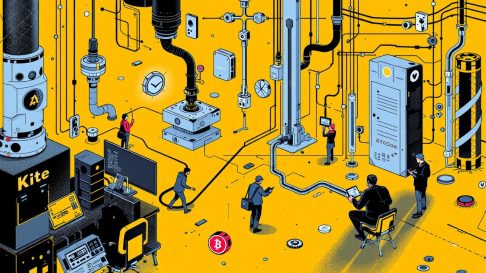Published: November 11, 2024 at 9:13 pm
Updated on June 09, 2025 at 7:07 pm




I recently stumbled upon a heated discussion about whether the U.S. government should hold Bitcoin as a reserve asset. On one side, you’ve got pro-crypto figures like RFK Jr. claiming it could modernize financial systems and hedge against inflation. On the other, there’s Peter Schiff—an economist who’s been skeptical of Bitcoin for ages—warning that it would lead to hyperinflation and economic chaos.
In this post, I want to break down some of the points made in an article I read and share my own thoughts on the matter.
Schiff makes some compelling arguments. He suggests that if the U.S. were to buy a massive amount of Bitcoin, it would send prices through the roof, leading existing holders to cash out and destabilizing everything. The cycle of volatility could collapse both the crypto market and the dollar.
One of his biggest fears is market manipulation. Imagine if a government holds billions in Bitcoin—it could easily sway prices by buying or selling large amounts, creating even more chaos.
Interestingly, the article also discusses how AI-driven trading strategies might help manage such a reserve efficiently. These systems could automate processes and even implement risk management strategies like diversification and hedging.
But here’s where it gets tricky: just because something is automated doesn’t mean it’s free from risks or regulatory issues. The article argues we need solid frameworks in place to ensure transparency—something that seems especially crucial when dealing with something as volatile as cryptocurrency.
The piece also dives into some historical examples of governments holding volatile assets—from pre-Federal Reserve America to post-2008 financial crisis scenarios. It seems there are lessons to be learned here.
Back then, banking instability was rampant until they created a central bank to manage those reserves effectively. Fast forward to today, and while some argue we’ve avoided disaster since 2008 due to unconventional policies like QE, others worry we’re setting ourselves up for another crisis.
So should we? While there may be potential benefits in terms of modernization and financial efficiency, the risks seem far too great at this point in time.
As someone who trades crypto futures in the US myself (and knows how easy it is for things to go sideways), I can’t help but feel cautious about this proposal.
Would love to hear what my fellow crypto traders in USA think!
Access the full functionality of CryptoRobotics by downloading the trading app. This app allows you to manage and adjust your best directly from your smartphone or tablet.


News
See more







Blog
See more






